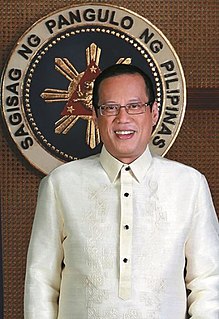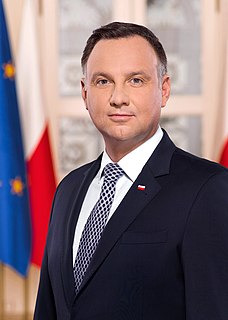A Quote by Benigno Aquino III
Both President Obama and I shared the conviction that territorial and maritime disputes in the Asia Pacific region should be settled peacefully based on international law. We affirm that arbitration is an open, friendly and peaceful approach to seeking a just and durable solution.
Related Quotes
The Philippines made a lawful and peaceful effort to resolve their maritime claims with China using the tribunal established under the Law of the Sea Convention (Unclos). The tribunal's ruling delivered a clear and legally binding decision on maritime claims in the South China Sea as they relate to China and the Philippines - and that ruling should be respected. We believe this decision can and should serve as an opportunity to renew efforts to address maritime claims peacefully.
We welcome the Obama administration's policy called the 'pivot to Asia' because it is a contributing factor to the safety and peace of the region. I think this pivot policy is playing an indispensable role in enhancing the deterrence of the U.S.-Japan alliance as well as ensuring peace and security in the Asia-Pacific region.
A government is a compulsory territorial monopolist of ultimate decision-making (jurisdiction) and, implied in this, a compulsory territorial monopolist of taxation. That is, a government is the ultimate arbiter, for the inhabitants of a given territory, regarding what is just and what is not, and it can determine unilaterally, i.e., without requiring the consent of those seeking justice or arbitration, the price that justice-seekers must pay to the government for providing this service.
We spoke about economic sanctions only recently in Lima, within the framework of APEC. Almost all the leaders represented at APEC (the Asia Pacific region), Pacific countries, spoke about the same thing, namely, that we are going through a very acute crisis in world trade, international trade, related, among other things, to restrictions on the markets of certain countries.





























